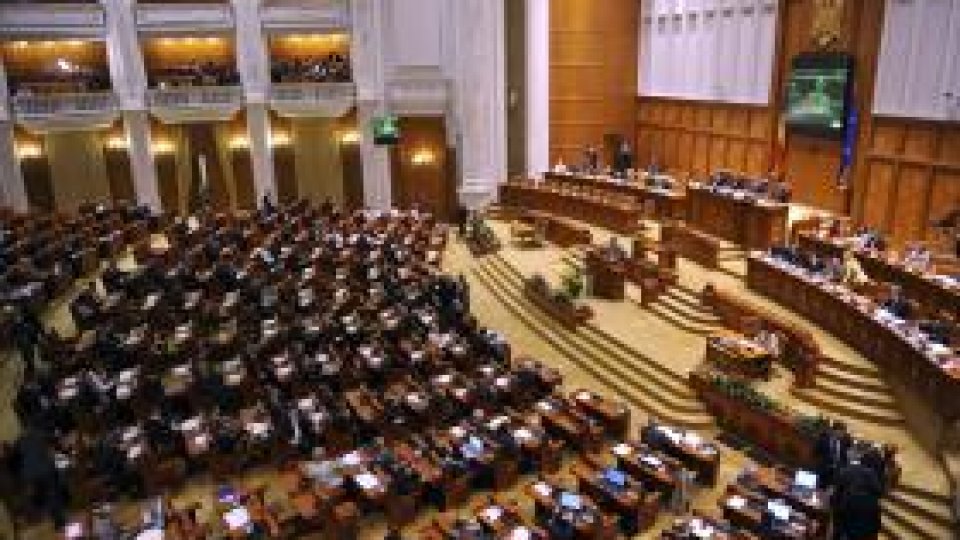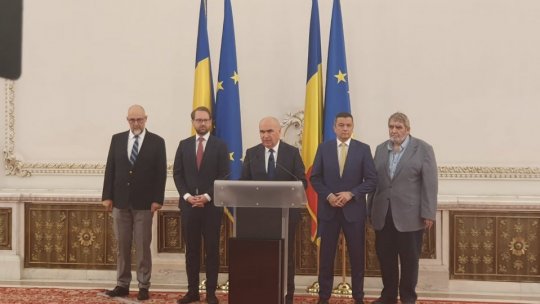The result of the no-confidence motion
The coalition government in Romania, led by the Social Democrat PM Victor Ponta survived Friday’s no-confidence motion introduced by the Liberal opposition.

Articol de Radio România Internaţional, 12 Iunie 2015, 16:21
The Romanian government coalition made up of the Social Democratic Party, the National Union for the Progress of Romania, the Conservative Party and the Liberal Reformist Party has again proved unbreakable.
Only 194 MPs voted in favour of the no-confidence motion introduced by the Liberals, well short of the 278 votes required for it to pass.
The Liberal parliamentary groups have only 173 members so everybody knew there were slim chances for the motion to pass.
The fact that independent MPs, Social Democratic dissidents or former members of the People’s Party - Dan Diaconescu supported the motion didn’t’ matter much, given that even the Democratic Union of Ethnic Hungarians in Romania, the second largest party in the opposition, refused to support the Liberal initiative.
At political level, analysts say, the motion is just a matter of image, although the reasons for filing it were extremely serious.
The themes of the motion introduced by the Liberals are the organizational chaos accompanying the voting process abroad, at the presidential election last November, when thousands of people could not vote, although they queued for hours in front of the polling stations, as well as the failure to pass the postal voting law, which could have prevented the said situations.
Under the title ‘Victor Ponta dismissed for excess of power by blocking elections’, the Social Democrat PM is accused of having tried to become president by deliberately sabotaging the Romanian citizens in the diaspora, most of whom traditionally vote for the right, and of currently refusing to organize partial elections in numerous counties, cities and villages left without officials elected in 2012 and subsequently arrested for corruption.
By surviving another no-confidence motion, the third since he took office in May 2012, the PM has won another battle.
But, pundits say, this is not a guarantee that he will win the war. Ponta’s image has been seriously damaged both in Romania and abroad, by the political and corruption scandals involving either himself directly or various people in his entourage.
On Thursday, another of his Cabinet’s member, Transport Minister Ioan Rus, had to resigned after having insulted the Romanians working abroad.
A week ago, the introduction of the no-confidence motion had been eclipsed by the announcement that Victor Ponta was being prosecuted by the National Anti-Corruption Directorate for forgery, accessory to recurrent tax evasion, money laundering and conflict of interest, which he allegedly committed before and after he became a PM.
This makes Victor Ponta the first prime minister of post-communist Romania under criminal investigation while still in office.
And this is something that might get his coalition partners reconsider their position.














